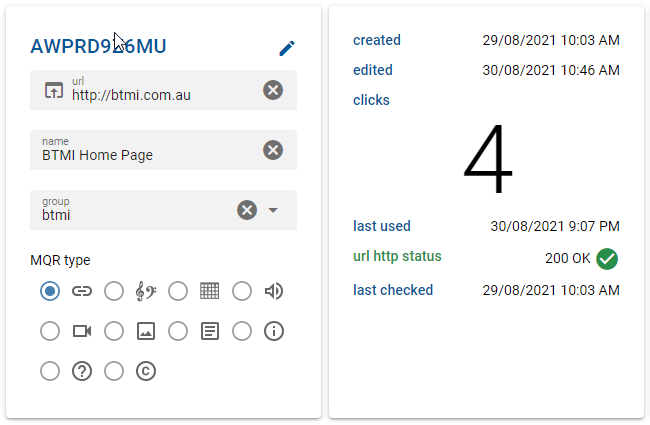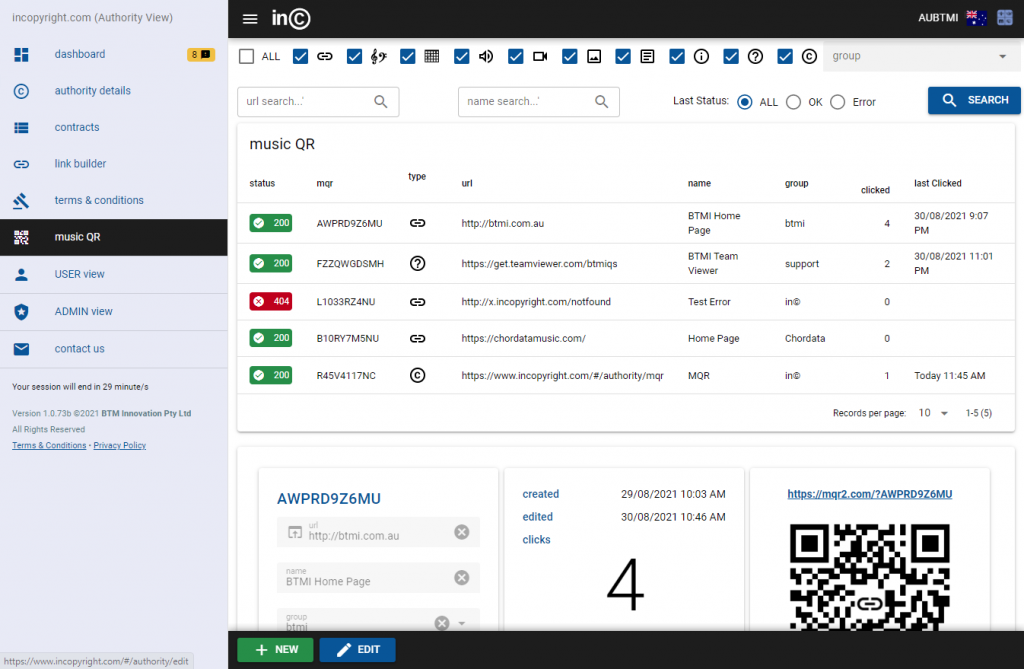One strange by-product of the global pandemic is that QR Codes are now ubiquitous – something I am very happy about because I love the way this technology is able to link printed material with all that the internet has to offer.
In the educational music publishing sphere, the inclusion of external resources (like audio and video) are a key component of most printed publications. These assets were usually bundled in the form of a cassette, CD or DVD on the cover, but in recent times where fewer and fewer people have access to media readers, publishers have been forced to pursue different distribution channels.
Using a QR Code on sheet music to connect the printed material with the online media is already quite common, and now we have the added benefit that the vast majority of the general public are trained in their use.
There is though a unique challenge in this application of the technology because QRs for the most part are disposable and designed for short term use. When a QR Code is included on a piece of sheet music, it must work for as long as the music in circulation, which can be for decades to come.
404 Not Found
I am sure you know with your own websites that occasionally, it is necessary to change where links are pointing to, especially if the assets are located on a domain you do not control. When a link cannot be resolved, the user gets a somewhat unhelpful 404 Not Found message that leads nowhere. Ideally the QR Code should take a user to somewhere that never changes and redirect them to a location that you have complete control.
A long way home
Another challenge with QR Codes is that the destination link can be fantastically complicated – much too long to type or share without access to copy and paste. The solution to this conundrum is usually to use what is known as a link-shortening service – a website that takes a long URL and transforms it so something a lot smaller (sites like Facebook, YouTube and Twitter do this automatically). While there are literally thousands of websites that provide these services, you should be very careful with who you choose, because once you commit to their protocol, you cannot change it. The worst-case scenario is the link-shortening service you use goes out of business and its assets are taken up by someone that points all of your links to somewhere you do not want your customers to go.
MQR to the rescue
To help publishers with these challenges, as part of the in© platform we have created a QR and link shortening service called the Music QR (or MQR for short).
Our implementation has a number of unique features including:
- Easy management of large collections of QR codes (as codes can be saved and searched by name and in nominated groups).
- No Limit to the number of MQRs you can create, and the links will always work (even if you stop using in©).
- Compact QRs no matter how many characters in your destination URL. Short URLs mean smaller QR Codes and so minimal print real estate is required.
- SVG Export for perfect reproduction at any resolution
- Link Auditing is automatic, with regular checks of all links to make sure they are valid (and users are alerted if any links are not working)
- Click Tracking is limited to just count the number of clicks – no other tracking of requests is performed, but you can see what impact your QR Codes have made
- URL Updates are possible, either on individual MQRs, or via batch updates (managed by BTMI directly)
Smarter QR Codes
In addition to these features, the MQR has some special features to provide more information about what sort of links are being offered.

When creating a MQR, you must select the TYPE of link from the options which include special options for URLs that point to Sheet Music or Tabs, Audio or Video. The reason behind these choices is to provide more information for your customers about the assets revealed by the MQR. We are in early discussions with a number of digital platform creators who have the power to take a humble MQR and turn it into an interactive experience which I expect will one day directly connect your music to anything on the internet.
The MQR should be of interest to any publisher that uses currently QR codes or link shortening services, or have plans to do so in the future.
For publishers already registered at incopyright.com, you can road-test the MQR now here (or use the MQR above). If you have not yet registered on the platform, please contact me to arrange this (while in beta, in© is completely free).

